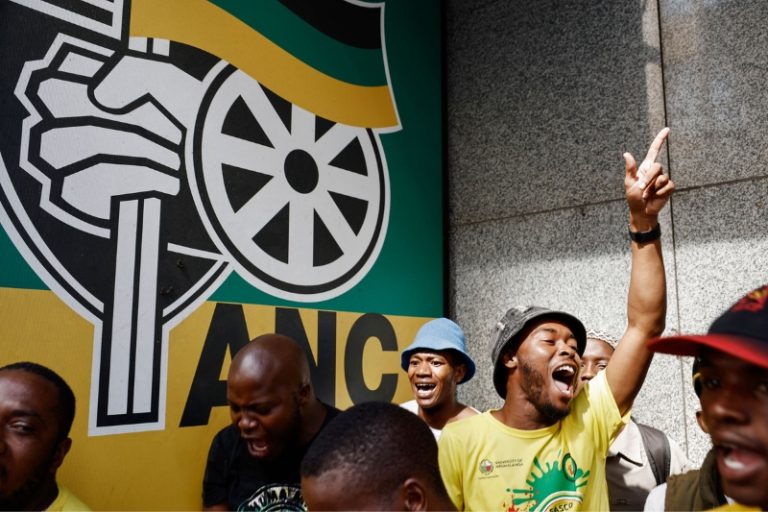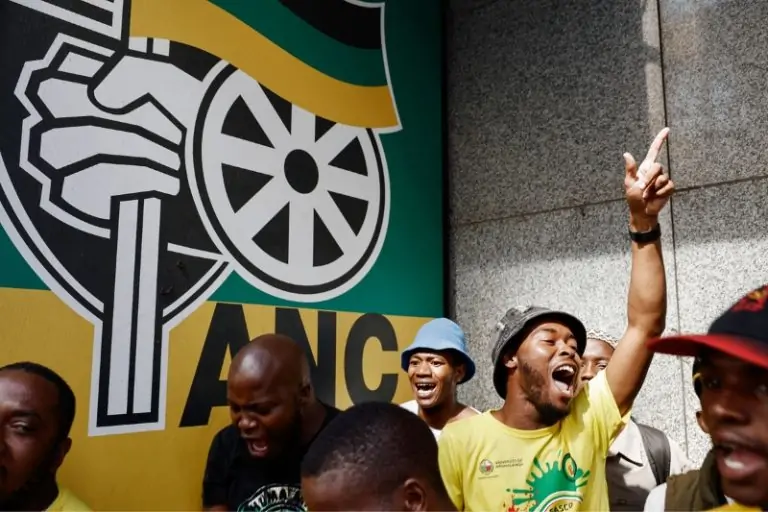

the next election in south africa presents a serious obstacle for the ruling anc (2)
The public’s tolerance for the ruling African National Congress (ANC), which has ruled since the end of apartheid thirty years ago, will be put to the test in South Africa’s May 29 election. Polls indicate that President Cyril Ramaphosa and his party may lose more than 50% of the national vote for the first time as they struggle to hold onto their parliamentary majority.
Even with the predicted drop in support, the ANC is still predicted to win the majority of the vote. To keep in power and guarantee Ramaphosa’s second term as president, it will, however, need to build a coalition in the absence of an absolute majority. With the recent municipal coalition government failures, this change may bring new challenges.
A political expert at Tshwane University of Technology, Dr. Levy Ndou, warned against the volatility that coalition governments may bring. “Coalitions in various metros have shown that they often lack principle, which could lead to further instability in South Africa,” Ndou said to the Associated Press.
Residents of South Africa choose members of the National Assembly rather than their president directly. The head of state is then chosen by the dominant party in the 400-member assembly. This election is a big change from previous ones since the ANC might have to create an alliance with other parties to get the 201 votes needed to reelect Ramaphosa and form a government.
Voting in embassies and foreign missions by South Africans living abroad begins on the Friday and Saturday before the election. Both the national and provincial legislatures will be constituted by the main election, which will take place in all nine provinces. South Africa’s seventh fully democratic general election since apartheid ended has about 27 million registered voters out of the nation’s 62 million residents.
Participating in this election are a record 70 political parties and a large number of independent candidates. With the aim of challenging the ANC’s supremacy, the centrist Democratic Alliance (DA), the main opposition to the ANC, has teamed up with minor parties. Polls do show, though, that the opposition is still a long way from ousting the ANC.
The third-biggest party is the far-left Economic Freedom Fighters (EFF), headed by Julius Malema. The EFF, for all its radicalism, has not greatly expanded its support since the previous election, when it won 10% of the vote against the ANC’s 62% and the DA’s 20%.
With 80% of its people being black, the country has 12 official languages and a diverse population that is starting to mirror an equally diverse political environment. Especially the new party, uMkhonto weSizwe, headed by former President Jacob Zuma, has drawn attention. Zuma left the ANC because of his savage rivalry with Ramaphosa, his successor.
High unemployment and poverty rates are major causes of voter dissatisfaction; the World Bank reports that over half of the population lives in poverty and that 32% of people are unemployed, the highest rates worldwide. Further aggravating popular dissatisfaction has been the ANC’s inability to provide basic services, pervasive corruption, high crime rates, and the state-owned electricity provider’s problems, which have resulted in frequent blackouts.
The economy and public spirits have suffered greatly, even if there had been fewer blackouts before the election. The ANC is up against its biggest task to date as South Africans get ready to vote: negotiating a convoluted political landscape while attending to the country’s urgent needs.
Canadian companies have expanded their presence as major African mining stakeholders and invested more than $37 billion. Africa holds the…
The South African government wants people to plant one million trees across the nation within a single day on September…
The government's statistics regulator showed that South African inflation stayed at 3.2% during February and rose below the projected 3.3%.…
Keywords: Cape Town, African Energy Chamber, Africa, The 2025 African Energy Week (AEW) will host the top energy leaders from…
Recent research shows that Professor Abdessamad Faik believes Africa is at an important energy choice point as renewable-powered hydrogen allows…
The United States plans to shut down its Johannesburg consulate after Sandton Drive gets renamed to Leila Khaled Drive even…
This website uses cookies.